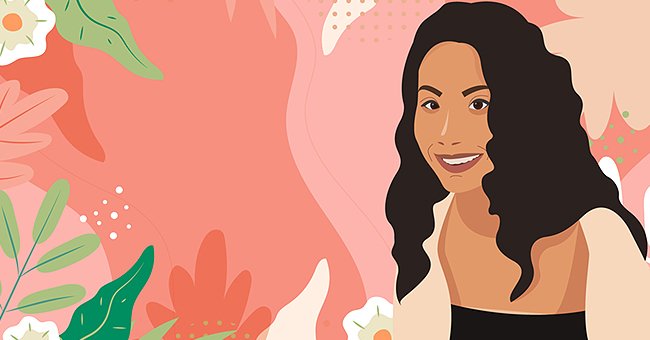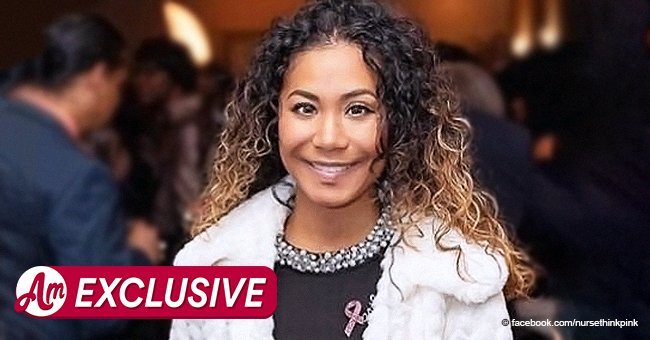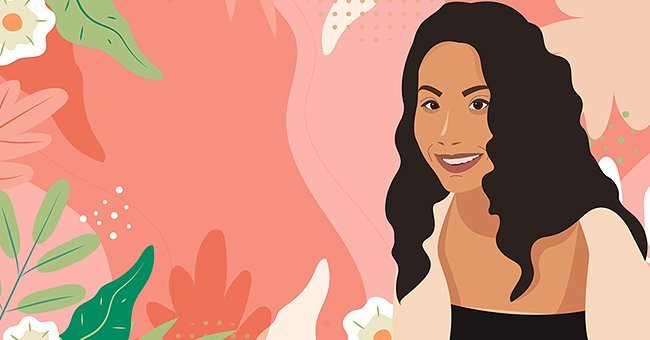
Women With Will: Minnie Morales on Dealing with Breast Cancer at 20 Years Old
"Should I be crying? Should I be afraid?" wondered Minnie Morales shortly after being diagnosed with Stage 2 breast cancer a week after turning 20 years old.
When we are young, we tend to take our health for granted. Nothing serious could happen to a 20-year-old college student with a bright future ahead, right? There's nothing capable of slowing them down! Unfortunately, that is not always the case.
Although it is rare, breast cancer can affect people in their 20s, and that's precisely what happened to Minnie Morales. In our efforts to raise breast cancer awareness as part of AmoMama's #WomenWithWill project, we exclusively interviewed Minnie to learn more about her experience. This is her story.
"
However, one day while sitting in my college class, I felt a huge lump on my right breast. I showed one of my best friends, and we were confused. We had no idea what this lump was about.
I told my mother, and since none of my family members or friends had breast cancer, we were confused. We had never experienced breast cancer or knew what signs to be vigilant of."
"She then recommended I make a doctor appointment to find out more information about this lump. The day came, and when I was diagnosed with invasive ductal carcinoma, stage 2 breast cancer, I had no idea how to feel.

Source: Facebook/nursethinkpink
How was a kid who just turned 20 the week prior supposed to feel? My mother was with me and immediately started crying, and this frightened me. Should I be crying? Should I be afraid? I didn't know what breast cancer entailed.
My oncology surgeon immediately told me the lump was pretty large from what she could see in my ultrasound, and I needed to have surgery immediately to remove it."
"Since I was her youngest patient, she advised me to have a bilateral mastectomy (both breasts removed) because if I were to live a long life, there is a high chance I could have a reoccurrence of breast cancer.
She also advised me to begin chemotherapy after surgery, which would require me to drop out of college before the semester was over. I was devastated, but I trusted my doctor.
I had a bilateral mastectomy two weeks later, and once my wounds were healed, I had a port placed in my chest to begin six rounds of chemotherapy."

Source: Amomama
Because I had recently got accepted into UTHealth School of Nursing, I wanted to finish treatment and go back to school to finish my degree as fast as possible.
The doctor allowed me to receive all three chemotherapy agents each time I went rather than space out my treatment over the course of a year. Once I was finished with chemotherapy, I had to immediately begin hormone therapy since my tumor was feeding off estrogen.
This meant every day, I had to take Tamoxifen and every few weeks go to the doctor to get an injection to fully shut off my estrogen, sending me into artificial menopause for the next five years."
"The most difficult thing I experienced, though, was the lack of knowledge and resources for young adults. My mother and I asked several questions about whether the medication would have long term effects on my fertility.
None of the doctors knew or had experience with a patient as young as I was. They didn't offer me the option to harvest my eggs, and when we researched it, my mother told me we wouldn't be able to afford it on our own anyway. Everything was up in the air and, there were so many 'what ifs.'
Thankfully, I was fortunate enough to connect with the Alamo Breast Cancer Foundation, who accepted me and my questions with open arms. The founder Ms. Eastman among the other survivors introduced me to different networks and volunteer opportunities that kept my spirits up."
"Years later, Ms. Dale Eastman would even connect with Livestrong and several congress members to address these fertility issues in young cancer survivors.
Throughout the whole process, my main support was definitely God. I really didn't have many people who could relate to what it's like losing body parts, your spirit, and having your life interrupted. I read the Bible and spoke to God a lot during that time.
Then the ABCF, along with Komen and other local San Antonio organizations, introduced me to a wonderful city of opportunities to help other fighters and survivors. I met so many strong men and women and a community that really wants to help each other survive."
"My humor and my ability to be carefree definitely helped me go through this ordeal. Going through such a dark time in life, you either need to just roll with the punches or laugh at yourself. When I finally went back to nursing school, I met such wonderful fellow nurses who I could just laugh with and poke fun at ourselves.
Following the while experience with breast cancer, I did find new meaning in my life, and my heart softened. I try to see the humor and light in things more, and I definitely believe that we all have a light at whatever tunnel we may be growing through. I met many people who are no longer here today and know that things could always be worse.
I'm thankful for what God has given me and try to help others see the good in their lives. I even was able to finish school and get my Master's Degree in nursing. I also got married, and the week before I was due to see a fertility specialist to see my chances of pregnancy, I got pregnant! Now my husband and I are expecting a little girl."
"My advice for friends and family of cancer patients is: Don't stop checking on your friends or family. Many people feel lonely during this time.
They are immunocompromised, fatigued, and sometimes embarrassed with how medicine and surgery changed their body. A phone call, a letter, even dropping off a meal goes a long way, and we never forget it!"
This interview is part of AmoMama's #WomenWithWill. It was created to raise breast cancer awareness and give women a platform to share their experiences. If you are a breast cancer survivor or are currently being treated and want to tell us your story, please contact us through our email or other social networks.
